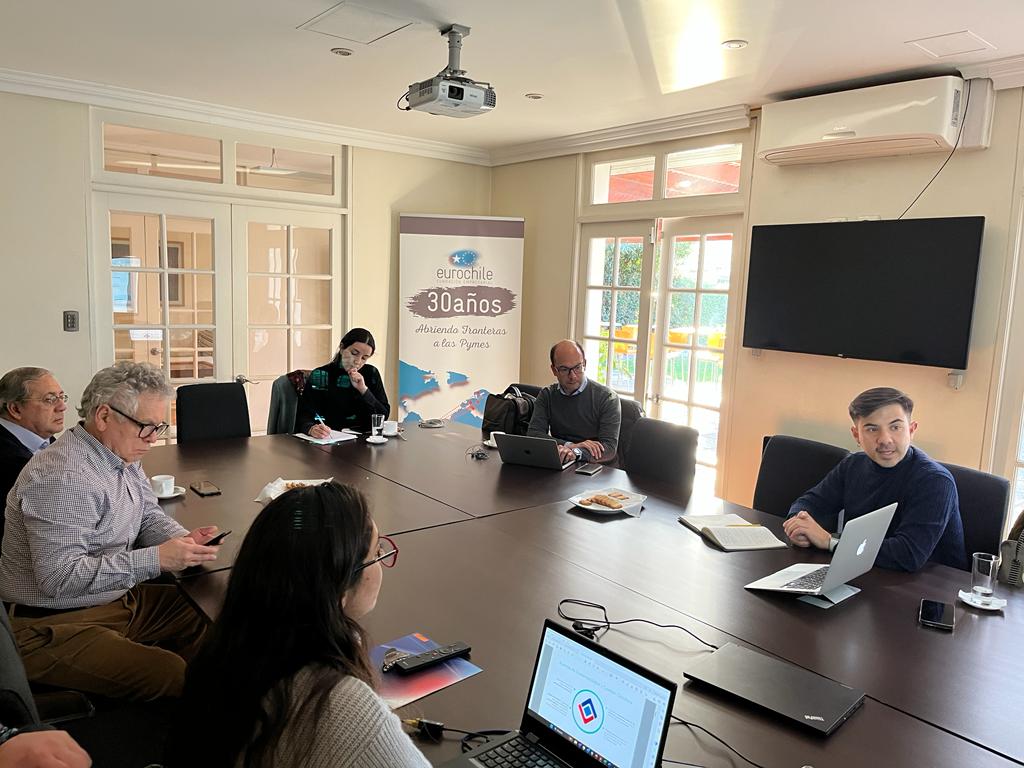The Circular Economy Working Group of Eurochile Foundation deepened the approaches of the Cleaner Production Agreements in Chile and Europe with the support of experts
In the framework of the activities of the circular economy working group, founded in 2019 as an instance to support Chilean SMEs in their transition to become more circular, participating members met with national and European experts to address the different points of view regarding the Clean Production Agreements (CPAs) that are being developed both in Chile and Europe and the benefits that these tools bring by incorporating them into companies.
Clean Production Agreements (CPAs) are a voluntary environmental management tool that seeks to improve efficiency in the use of natural resources through specific and measurable commitments and goals, within a given timeframe, to reduce greenhouse gas emissions, improve energy efficiency and reduce the use of toxic products.
In Europe, CPAs are also an important environmental management tool and are promoted by the European Commission. These agreements focus on objectives such as improving energy efficiency and reducing greenhouse gas emissions in the industrial sector.
Meanwhile, in Chile, CPAs have been developed for various productive sectors, such as agriculture, mining, construction, tourism and transport and storage of goods, among others. These agreements involve companies, communities and public bodies, who work together to establish concrete environmental objectives and targets and develop action plans to meet them.
The benefits of Cleaner Production Agreements offered to companies are varied, including: more efficient management of resources, reduction of operating costs, and improvement of environmental quality. In addition, CPAs can encourage technological innovation and the development of new environmentally friendly products and services that have a favourable impact on productivity and increase competitiveness.
During the meeting, Linnet Solway, a French expert in Circular Economy, gave a remote presentation on the benefits that the initiatives of the CPA pacts have had in Europe. On the other hand, Sebastián Carvallo, Deputy Director of Sustainable Production of the Agencia de Sustentabilidad y Cambio Climático de Chile, presented the measures that are being taken in the country to address this issue.
“A factor that allows the promotion of Cleaner Production Agreements in Chile is the development of four official standards that establish guidelines for the development, implementation and certification of compliance with them. Another relevant issue is that in 2012, the UN internationally validated the Clean Production Agreements as the first Nationally Appropriate Mitigation Action, highlighting the eco-efficiency and sustainability promotion strategy implemented by the Sustainability and Climate Change Agency. Since 2016 we have decided to publicly report the emission reductions achieved through these agreements in accordance with the Ministry of Environment standards. This has allowed us to estimate reductions of 1,466,336 tonnes of CO2 between 2012 and 2019, with the Clean Production Agreements being the first Chilean mitigation action to report these reductions to the United Nations,” says Sebastián Carvallo, deputy director of Sustainable Production at the Sustainability and Climate Change Agency.
On the other hand, Ivonne Palma, Director of the Sustainability and Circular Economy area, highlights that, “Clean Production Agreements are a key tool to move towards a circular and sustainable economy, as they promote the adoption of more environmentally friendly practices and technologies, generating benefits for both companies and society in general. This is why, thanks to the experts’ insights, they help our Circular Economy working group to have the necessary tools to promote strategies and solutions that contribute to a sustainable future.
In short, adding CPAs o companies is an opportunity to improve processes, products and services, with the aim of generating a positive impact on the environment and the community. In addition, having the opportunity to join the Circular Economy group of the Eurochile Business Foundation provides access to a wide network of contacts, knowledge and tools to achieve a more efficient and sustainable management.

